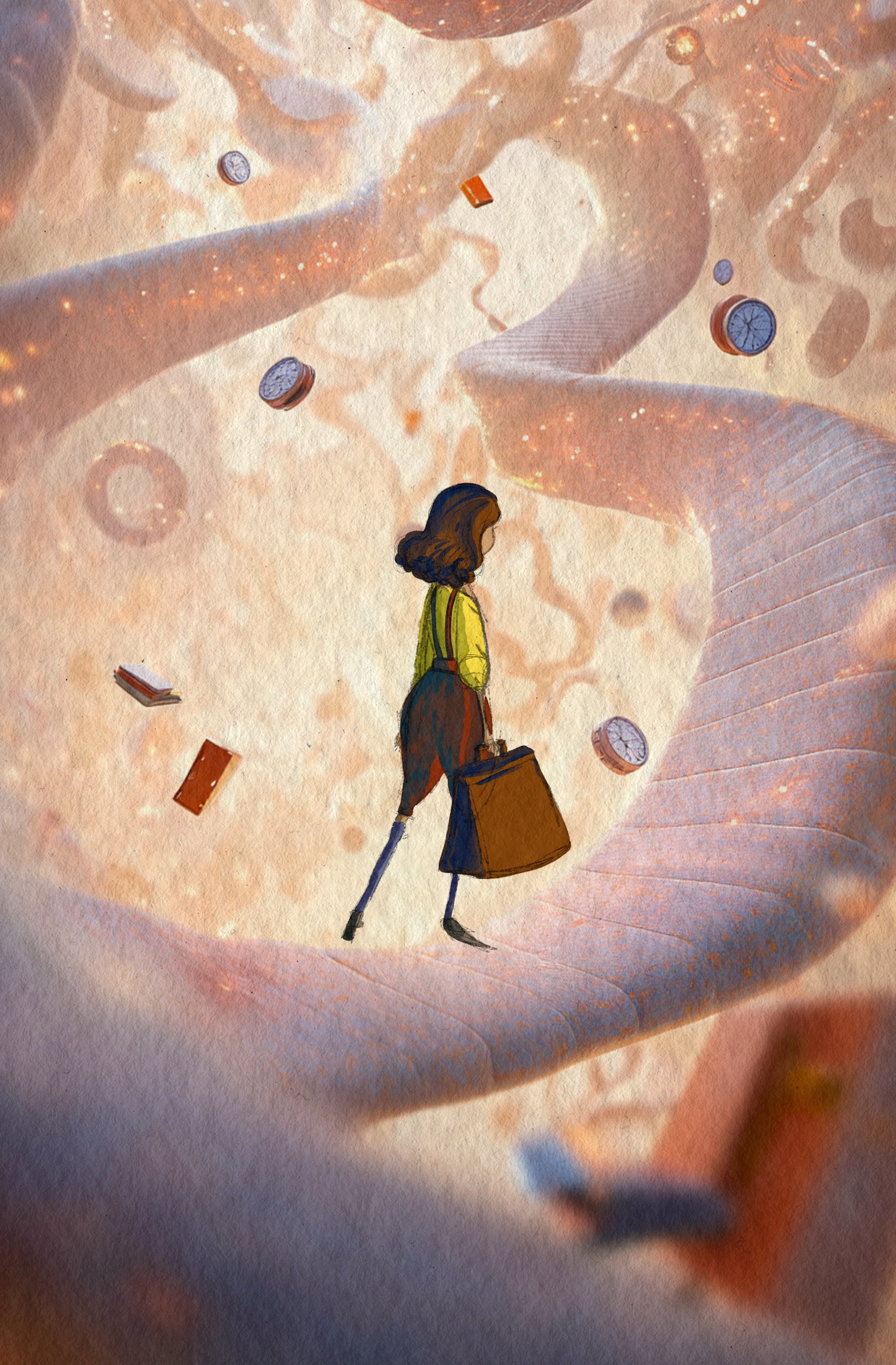The dual journey of navigating the ‘awa of higher education’ from a Māori doctoral student’s lens
Abstract
For many Māori students, staying in the main flow of the awa (river) is not easy in New Zealand’s mainstream education system. But with the right support mechanisms and structures in place, it is possible, for a Māori doctoral student to achieve educational success as Māori in higher education. This paper discusses what is entailed in the dual journey of a first in family, Māori doctoral student when completing a doctoral qualification alongside a Māori journey in strengthening connections within te Ao Māori (the Māori world). The narrative shares insights of the researcher’s experiences which led to the development of an Indigenous methodology model called ‘He Pūtauaki Model’. A number of key factors for ensuring her success as a Māori doctoral candidate was the continual support and guidance provided from kaumātua (elders), whānau (family), hapū (sub-tribe) and iwi (tribe), over a four-year period of completing the doctoral journey, and when a Mahitahi approach was adopted by her supervisors and reinforced by other Te Ipukarea Research Institute postgraduate students made a difference for her in overcoming the challenges that an Indigenous Māori doctoral student can face when navigating the awa (structural mechanisms and psychosocial challenges) at Auckland University of Technology (AUT).
Downloads
Metrics
References
Abraham, H. (2021). Iti noa ana, he pito mata: A critical analysis of educational success through a Māori lens and two case studies of whānau within Ngāti Awa and Ngāti Tūwharetoa (Doctoral thesis, Auckland University of Technology). http://hdl.handle.net/10292/14445
Amunsden, D. (2019). Student voice and agency for indigenous Māori students in higher education transitions. Australian Journal of Adult Learning, 59(3), 405-434. https://doi.org/10.1080/13562517.2017.1379485
Carlson, T., Moewaka-Barnes, H., & McCreanor, T. (2017). Kaupapa Māori evaluation: A collaborative journey. Evaluation Matters-He Take Tō Te Aromatawai, 3, 67-99.
Doherty, W. (2009). Mātauranga Tūhoe: The centrality of mātauranga-a-iwi to Māori Education [Doctoral thesis, University of Auckland]. ResearchSpace https://researchspace.auckland.ac.nz/handle/2292/5639
Glynn, T., & Berryman, M. (2015). Relational and culturally responsive supervision of doctoral students working in Māori contexts: Inspirations from the Kingitanga. Waikato Journal of Education, 20(2), 69-77. https://doi.org/10.15663/wje.v20i2.191
Hohepa, M. (2010). ‘Doctoring’ our own: Confessions of a Māori doctoral supervisor. In J. Jesson, V.M. Carpenter, M. McLean, M. Stephenson & Airini (Eds.), University Teaching Reconsidered: Justice, Practice, Inquiry (pp. 129-138). Dunmore Publishing Ltd. https://hdl.handle.net/10289/4840
Johnson, M. (2014). Doctorates in the dark: Threshold concepts and the improvement of doctoral supervision. Waikato Journal of Education, 19(2), 69-81. https://doi.org/10.15663/wje.v19i2.99
Ka'ai, T. (1995). Te tātari i te kaupapa [unpublished doctoral thesis, University of Waikato].
Ka’ai-Mahuta, R. (2010). He kupu tuko iho mō tēnei reanga: A critical analysis of waiata and haka as commentaries and archives of Māori political history [Doctoral thesis, Auckland University of Technology]. Tuwhera.https://openrepository.aut.ac.nz/handle/10292/1023
Ka’ai, T., & Higgins, R. (2004). Te ao Māori-Māori world-view. In Ka’ai, T. M., Moorfield, J., Reilly, M. P. J., Mosley, S. (Eds.). (2004). Ki te Whaiao: An introduction to Māori culture and society. Pearson Education.
Ka’ai, T., Smith, T., Abraham, H., McRae-Tarei, J., Taituha, G., & Te Ratana, R. (2022). Indigenous collaborative methodology (Mahitahi) and the academy. academy [Unpublished manuscript]. Te Ipukarea Research Institute, Auckland University of Technology.
Kerr, S. (2012). Searching for good evaluation: A hikoi (Doctoral thesis, Massey University). https://mro.massey.ac.nz/bitstream/handle/10179/4214/02_whole.pdf
Lehbner, A., & Yehuda, R. (2018). Cultural trauma and epigenetic inheritance. Development and Psychopathology 30, 1763-1777. https://doi.org/10.1017/S0954579418001153
McAllister, T.G., Kidman, J., Rowley, O., & Theodore, R. F. (2019). Why isn’t my professor Māori? A snapshot of the academic workforce in New Zealand universities. MAI Journal,8(2), 236-249. https://doi.org/10.20507/MAIJournal.2019.8.2.10
McCallin, A., & Nayar, S. (2012). Postgraduate research supervision: A critical review of current practice. Teaching in Higher Education 17:1, 63-74. https://doi.org//10.1080/13562517.2011.590979
McKinley, L., & Grant, B. (2012). Expanding pedagogical boundaries: Indigenous students undertaking doctoral education. In A. Lee & S. Danby (Eds.), Reshaping doctoral education: International approaches and pedagogies (pp. 204-217). http://www.ebookcentral.proquest.com
Mckinley, E., Grant, B., Middleton, S., Irwin, K., & Tumoana-Williams, L.R. (2011). Working at the interface: Indigenous students’ experience of undertaking doctoral studies in Aotearoa New Zealand. Equity & Excellence in Education, 44(1),115-132. https://doi.org/10.1080/10665684.2010.540972
Ministry of Education. (2021, July 21). Ka Hikitia – Ka Hāpaitia: The Māori education strategy https://www.education.govt.nz/our-work/overall-strategies-and-policies/ka-hikitia-ka-hapaitia/ka-hikitia-ka-hapaitia-the-maori-education-strategy/
Naepia, S., McAllister, T. G., Thomsen, P., Leenen-Young, M., Walker, L., McAllister, A., Theodore, R., Kidman, J., & Suaaliia, T. (2019). The Pakaru ‘Pipeline’: Māori and Pasifika pathways within the academy. The New Zealand Annual Review of Education, 24, 142-159. https://ojs.victoria.ac.nz/nzaroe/article/view/6338/5497
Pihama, L., Morgan, J., Smith, L. Tiakiwai, S. J., & Pihama, J. (2019). MAI Te Kupenga: Supporting Māori and Indigenous doctoral scholars within higher education. AlterNative: An International Journal of Indigenous Peoples, 15(1), 52-61. https://doi.org/10.1177/1177180119828065
Pū Kāea. (2010, June 23). Ngāti Umutahi Marae (pp. 10-12). https://ndhadeliver.natlib.govt.nz/delivery/DeliveryManagerServlet?dps_pid=IE2235531
Rangihau, J. (2008). Māori culture today. Aotearoa New Zealand Social Work Review, 20 (4), 3-12.
Theodore, R., T., Gollop, M., Tustin, K., Taylor, N., Kiro, C., Taumoepeau, M., Kokaua, J., Hunter, J., & Poulton, R. (2017). Māori University success: what helps and hinders completion. AlterNative, 13(2), 122-130. https://doi.org/10.1177/1177180117700799
Theodore, R., Tustin, K., Kiro, C., Taumoepeau, M., Taylor, N., Chee, K., Hunter, J. & Poulton, R. (2015). Māori university graduates: Indigenous participation in higher education. Higher Education Research and Development. 35(3): 1-15.
Wilson, D. (2017). Supervision of Indigenous research students: Considerations for cross
cultural supervisors. Alternative: An International Journal of Indigenous Peoples, 13, 256- 265. https://doi.org/10.1177/117718011772977
Wolynn, M. (2017). It didn’t start with you: How inherited family trauma shapes who you are and how to end the cycle. Penguin Books.
Copyright (c) 2023 Hazel Abraham
Article text:

This work is licensed under a Creative Commons Attribution 4.0 International License.
Photos:
The images in Rangahau Aranga are not covered by the Creative Commons license and are subject to copyright. Permission to reproduce this material must be sought from the copyright holder concerned.






